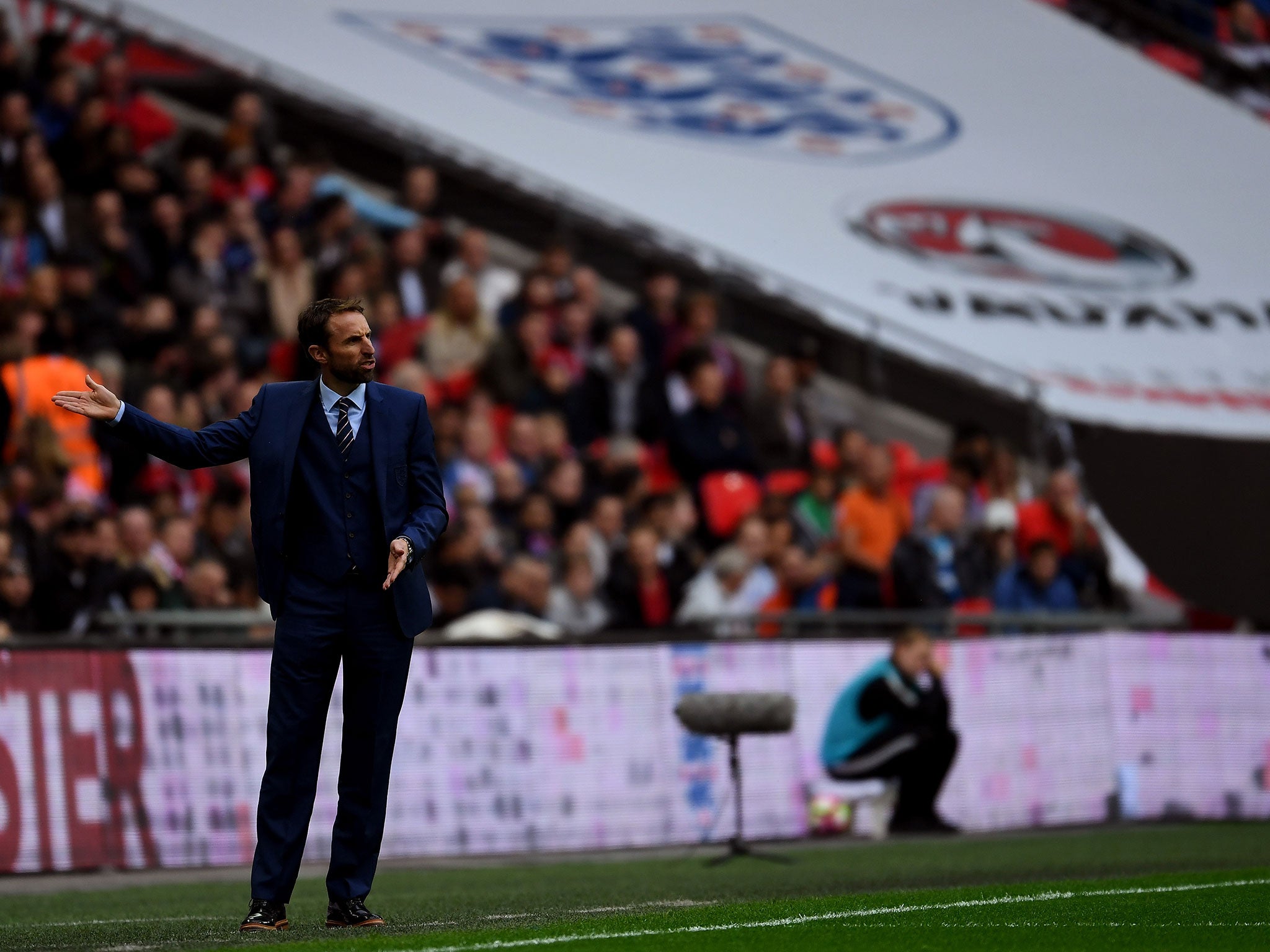England vs Malta: Seven days have shown us we might come to like Gareth Southgate's less stuck-up England
Southgate has been a more impressive face of the national team than most of us had expected, since he gave his first press conference seven days ago

Some of the advance filming which formed part of Saturday’s match broadcast provided further evidence that Gareth Southgate has it within him to create a less self-important and more attractive England.
He was interviewed in his office, which provided welcome informality and an insight into where the manager does his work. He had also agreed to some shots of himself staring straight into the camera. The effect was slightly strange but it was another measure that he does not consider himself to be above the choreography and is not such a great ‘I Am’ as his predecessors.
Southgate has been a more impressive face of the national team than most of us had expected, since he gave his first press conference seven days ago. Mocking England has become an easy national pastime and such is the cynicism attached to football that a clean cut new incumbent – who first arrived for his Crystal Palace traineeship wearing shirt, school trousers, Marks & Spender jumper and Hush Puppies shoes - is easy prey.
But here is a manager with the swagger taken out; a 47-year-old Englishman the nation might actually come to like. Don’t underestimate the value of that.
The national discussion about him continues to morph into that perennial debate about Wayne Rooney’s suitability for the team, though in that pre-match office interview Southgate was fairly frank about the player’s prospects if he continued to be on the margins of the Manchester United team. “I think the longer a situation goes where you are not playing with your club, it becomes more difficult,” Southgate said. For as long as Rooney struggles for the touch which even neglected against the Maltese, the decision about his place in the team will be an easy one, even though Southgate seems set to stick with him this week.
The more genuine source of suspense is whether Southgate will be tough in addressing the less clear-cut decisions. There does seem to be uncertainty about this, despite evidence of the unmitigated fury he sometimes displayed amid the poor professionalism he found at Aston Villa, in the late 1990s.
Lee Dixon is as well placed as any to offer opinions both on England’s interim manager and the FA’s favoured choice as permanent boss – Arsene Wenger. He’s worked with both and judging by his typically illuminating comments in the ITV studio on Saturday, he has doubts about either of them being tough enough.
Asked in the ITV studio if he’d observed a tough side to Southgate during their time broadcasting together, he replied: “I haven’t seen it but he’d better have.” The English contingent in the Arsenal dressing room had always felt the same about Wenger, Dixon added. “It’s something I always felt Arsene was averse to.”
England vs Malta player ratings
Show all 11A rod of iron didn’t look to be in much evidence when Southgate spoke after the anodyne goalless second half against Malta. “Subconsciously, one or two [of our players] looked after themselves in the second half physically,” he said – and it was difficult to ascertain whether he felt this acceptable. It was equally difficult to see an in-game contribution from Southgate because England’s quality rose and fell without any visible contribution from him. They burst into life after the half hour mark of the game, finding the rapid pass and move style which brought them two goals in nine minutes. They faded just as rapidly. The coming men on the Premier League management scene – Pep Guardiola, Jurgen Klopp and Mauricio Pochettino – would have had something to say about that from the technical area.
England also required a centre forward operating where a centre forward is supposed to operate: where he can hurt the opposition. Daniel Sturridge lacked that positional focus. He drifted away in the game’s second half, just like England did, even though the sublime headed goal he provided demonstrated his threat. Southgate didn’t seem to be exhorting him to get back to his role as a target for the midfielders, at the top of the team.
The solution to this problem seems to reside in a change of personnel. Marcus Rashford currently looks like he was born to play as England’s centre forward, even though he has been shoved to the flank by Zlatan Ibrahimovich’s arrival at Manchester United. Though much is made of ruthlessness, successful management is actually about getting big decisions right. When that happens, results, respect and ruthlessness can all flow.
It’s a measure of how far out of the nation’s affections England have fallen that what happens next for Southgate is awaited with vague curiosity, rather than any deep and residual hope that it will work out well. If it does, then the probable journey to the 2018 World Cup would see a young manager leading a creative core – Dele Alli, Jesse Lingard, Rashford - whose early international development he has himself influenced. Something to like - and fervently to wish for.
Subscribe to Independent Premium to bookmark this article
Want to bookmark your favourite articles and stories to read or reference later? Start your Independent Premium subscription today.

Join our commenting forum
Join thought-provoking conversations, follow other Independent readers and see their replies